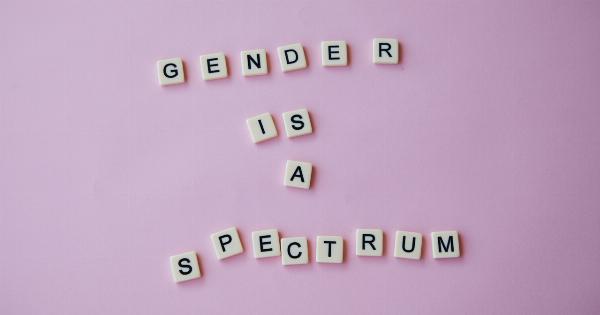Relationships can be complex and multifaceted, influenced by a myriad of factors such as emotional connection, personal compatibility, shared interests, and life goals.
However, a relatively recent field of study suggests that our DNA might play a role in shaping our relationship dynamics. The notion that genetic factors can influence our romantic choices and compatibility has sparked interest and debate among scientists, psychologists, and the general public alike.
The science of love: Do genes influence romantic attraction?
Studies have revealed that our DNA may contribute to our inclination towards certain personality traits and behaviors, which can in turn influence our romantic preferences and relationship satisfaction.
Research in the field of behavioral genetics suggests that genetic factors can account for a significant portion of the variance observed in human relationships.
One of the key genetic factors studied in the context of relationships is the human leukocyte antigen (HLA) complex, which plays a crucial role in the functioning of the immune system.
Some research suggests that individuals with dissimilar HLA profiles may be more attracted to each other, as this may increase the chances of producing offspring with a stronger immune system. While this theory remains controversial and requires further investigation, it highlights the potential influence of genetics on attraction and mate selection.
Compatibility and the love hormone: The role of oxytocin
Another aspect of genetics that has gained attention in relation to relationships is the impact of the oxytocin receptor gene. Oxytocin, often referred to as the “love hormone,” is associated with social bonding, trust, and empathy.
Variations in the oxytocin receptor gene have been linked to differences in relationship quality and the ability to form emotional connections.
Individuals with a specific genetic variant of the oxytocin receptor gene may have a higher likelihood of experiencing difficulties in establishing and maintaining healthy relationships.
This suggests that genetic factors can contribute to relationship dynamics and potentially play a role in determining one’s relationship status.
Inherited relationship patterns
Family studies have indicated that relationship patterns and behaviors can be inherited to some extent. If your parents or close relatives have had successful or unsuccessful relationships, it may influence your own approach to romantic partnerships.
While genetics alone cannot determine your relationship status, they may contribute to the development of relationship attitudes and behaviors that can influence your chances of success in forming and maintaining relationships.
The impact of genetics on compatibility and communication
The success and longevity of a romantic relationship often rely on compatibility and effective communication between partners. Genetic factors can potentially influence these aspects of a relationship.
For example, variations in genes associated with dopamine receptors may influence reward-seeking behaviors and mutual satisfaction in a partnership.
Furthermore, research has shown that certain genetic variations may impact communication styles and emotional responsiveness, which can either enhance or hinder relationship dynamics.
Understanding these genetic influences can help individuals and couples navigate potential challenges and work towards building stronger, more fulfilling connections.
Is there a “relationship gene”?
While it’s tempting to search for a single “relationship gene” that determines our romantic fate, it’s important to recognize the complexity of human behavior and the multitude of factors that contribute to relationship outcomes. Genetics may provide valuable insights into our predispositions and tendencies, but they do not dictate the course of our relationships.
Relationships are a complex interplay between genetic, environmental, and individual factors. Factors such as upbringing, life experiences, and personal choices all contribute to the development and outcomes of our romantic partnerships.
It’s important to approach the study of genetics and relationships with a nuanced understanding, acknowledging the multifactorial nature of human behavior and the immense individual variability.
The future of genetic research in relationships
As technology and research methods continue to advance, the field of genetics is likely to shed further light on the role of DNA in shaping our relationship dynamics.
However, it’s crucial to approach these findings with caution and avoid oversimplifications or deterministic interpretations.
While genetics may offer insights into our predispositions and tendencies, the ultimate success of relationships lies in the hands of the individuals involved.
Factors like communication, mutual respect, emotional intelligence, and personal growth play vital roles in nurturing loving and fulfilling partnerships.
Conclusion
While genetics can contribute to the development of certain personality traits and behaviors that may influence our relationship dynamics, they do not determine our relationship status.
Relationships are complex and multifaceted, influenced by a combination of genetic, environmental, and individual factors. It is important to approach the study of genetics and relationships with a balanced perspective, recognizing the multitude of factors that contribute to the formation and success of romantic partnerships.






























